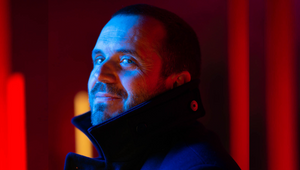
From Nobel Prizes to Napalm: A Story of Ambition and Apocalypse

Alfred Nobel’s name
has come to stand for Peace. But it wasn’t always so.
Born in 1833 in Stockholm, Nobel was a chemist, an engineer, an inventor, and an entrepreneur. He would’ve killed it on LinkedIn. Over his life, he held over 350 patents but most of them pertained to weaponry and explosives. His most famous? Boom. Dynamite.
In a world all too often at war, Nobel quickly made his fortune. But it was what happened next that would make his name. In 1888, Alfred’s brother Ludwig died while visiting Cannes. A French newspaper confused the two brothers and mistakenly published an obituary for Alfred: “Le marchand de la mort est mort” - “The merchant of death is dead.”
Talk about a wake up call. This wasn’t the legacy Nobel had imagined, so when he died in 1896, he made sure his name would be remembered differently. He left a will demanding his estate be used to fund annual prizes for people who had “conferred the greatest benefit on mankind”. There would be prizes in five disciplines: peace, literature, physics, chemistry, and medicine or physiology. (Economics came later, established by the Swedish Central Bank in 1968).
Today, the Nobel Prize is the most famous and highly regarded award in the world - with winners to match. But to me, it’s not the Big Names that fascinate - and there have been many: Einstein, Martin Luther King Jr., Marie Curie, Steinbeck to name a few. It’s the sleepers that inspire, the ones you’ve never heard of.
Growing up, I used to love waking up to read the morning papers and discover our world was being shaped not by celebrities in the spotlight but by selfless strangers in the shadows. Heroines and heroes working on endeavours both basic and beyond comprehension.
If these unfamiliar names could win one, why couldn’t I? Why couldn’t any of us?
Well, a few weeks ago 11 new names were added to the list of Nobel Laureates. No surprise, I wasn’t among them, but like many around the world I’ll keep on daydreaming about which prize I could somehow sneak.
Crazy, right?
I’m not so sure. In fact, here at 180 Amsterdam, we take inspiration from one such crazy dream…
For a moment, let’s leave the auditoriums of Scandinavia and step into a theatre of war. It looks like Vietnam in 1970, but we’re in the Philippines in 1977. Francis Ford Coppola is on location, trying – and struggling – to finish his psychedelic war epic, Apocalypse Now. It’s fast becoming one of the most delayed and disastrous productions in Hollywood’s history.
Filming has already been interrupted by a nearby civil war, and the original set completely wrecked by a typhoon. The leading man, Harvey Keitel, has been fired, only for his replacement, Martin Sheen, to suffer a breakdown and heart attack on set. Meanwhile, Marlon Brando has turned up so underprepared and overweight that he’s unable to play the crucial closing scenes that have been written for him.
Despite all this, Coppola refuses to quit. He keeps the cameras rolling through sheer force of will – and ruinous amounts of his own money. But time is running out. The Studio doesn’t share Coppola’s patience. Instead, they send in the cavalry. John Milius, the original screenwriter and mentor, is dispatched to restore order, bring Coppola to his senses and the production to a close.
“I felt like von Rundstedt going to see Hitler in 1944 – I was going to be telling him there was no more gasoline on the Eastern Front and the whole thing was going to fold,” Milius later recounted. However, even Milius was powerless in the face of Coppola’s ambition. “I came out an hour and a half later, and he had convinced me that this was the first film that would win a Nobel Prize. I came out of the room like von Rundstedt: “We can win! We don’t need gasoline! He had completely turned me around. I would’ve done anything.”
What no one else knew until that moment was that Coppola wasn’t trying to make a movie or win an Oscar. His ambition was to end all war and win a Nobel Peace Prize. He wasn’t trying to portray Vietnam; he was trying to create it to reveal its ugly truths.
In the end, he may not have walked away with one of Alfred Nobel’s medals, but his audacity overcame everything in its path and was rewarded with two Academy Awards and the Cannes Palme d’Or. He made the best war film ever made by daring to dream bigger than any director before him.
A quote from Francis Ford Coppola gave 180 its name. But more than that, he’s given us, and our clients, a respect for ambitions that lift their businesses beyond the conventions and constraints of their categories. That’s not an indulgence; it’s a commercial necessity.
In today’s world, doing more of the same – the same as before or the same as the rest – augurs a slow death. Sometimes, what you need is an apocalypse, because true ambition is a form of rebirth. As Cindy Gallop, the self-professed “Michael Bay of Business” would say, sometimes you’ve got to blow shit up. Copolla knew it. And Alfred Nobel discovered it – not with his explosives but his own reinvention.
At 180 Amsterdam, we believe insight and ambition are deadlier than dynamite. That’s why we use them to help companies find their Nobel Prize – to see their world not as it is, but as it could be.
It’s the best view I know.
Ben Armistead is Head of Planning at 180 Amsterdam













